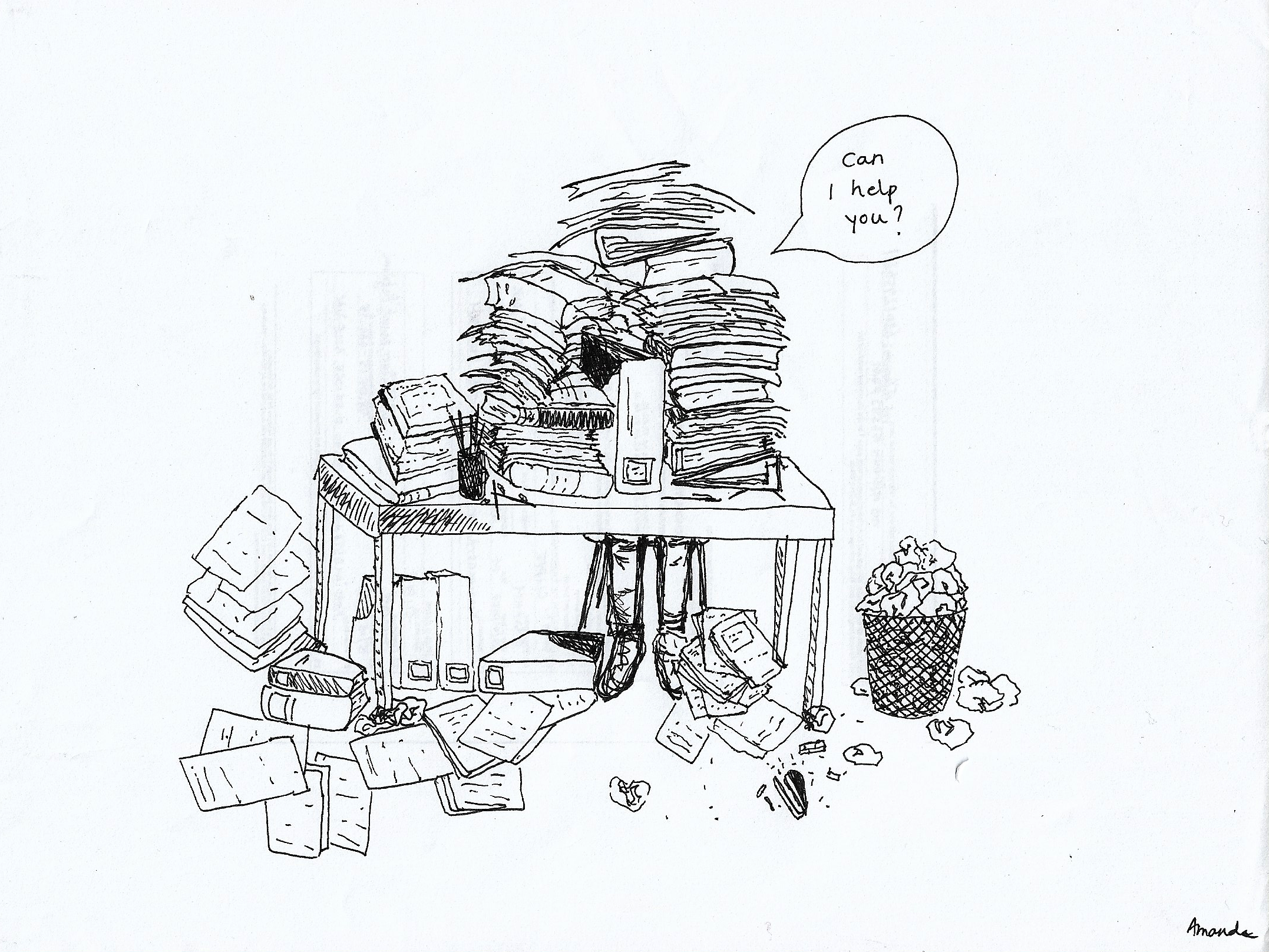The most important and time-consuming aspect of college is studying by yourself outside of lecture hours, and yet many students neglect this completely, especially in their first year. The material is more challenging and harder to grasp than that of secondary school and the thought of spending four hours attempting to understand it sends shivers down your spine. Do not worry, because this comprehensive study guide will show you the ropes of how to succeed in your first year and beyond in Trinity.
MUTE THE PHONE
The first hurdle to overcome to achieve a productive study schedule, no matter your field of study, is the constant distractions of college life. In school, there were regimented class and lunch times, but in college you may find yourself with four free hours and “nothing to do”. The temptation of a pint of Guinness in the Pav at 3pm can prove overwhelming, but how do you resist? The trick is to mute your phone! Simply not hearing or feeling the vibration of your phone as your new friends attempt to lure you for drinks is a sure-fire way of avoiding distractions. However, distractions are not always a bad thing. If it’s 6pm, and you have a day of good work behind you, try not to overwork yourself. Take that much-needed break and socialise to your heart’s content.
STEM STUDENTS
Self-study can prove very daunting to STEM students, who face a much heavier course load than the majority of arts students. Attempting to study after thirty or more hours of lectures in a week can seem an almost insurmountable obstacle. The key goal of any STEM student is to study smart, not hard. Set a specific time every day that can only be spent in the library and stick to it. During this time, focus solely on your work – no social media or YouTube! By implementing even two uninterrupted hours into your schedule, you can get as much done as a student who spends twelve hours in the library every day.
ARTS STUDENTS
Arts students admittedly can seem to have a lighter course load than STEM students, with some having as little as five contact hours every week. However, this is a blessing and a curse. Students with so few hours have to work much harder to maintain their discipline than those who have five hours of lectures every day. As a result of having so few contact hours, these students can feel detached from the college community and thus have no motivation to study themselves. Time management is not as much of an issue for these students, but rather discipline. The discipline to read hundreds upon hundreds of pages is what sets great arts students apart from the ones who look up summaries of articles and books online. Estimate the time it will take you to read an article or book, and consciously mark this time down on your calendar. By doing this for all your modules every week, you will stay on top of your readings and essays and have an edge on most students.
WORKSHOPS
In Trinity, Student Learning Development (SLD) is an amazing resource, which is largely underutilised by students. On their website, you can find great tips for exam, essay, and presentation skills, to name a few. For new students, the task of writing your first essay or lab report can be overwhelming. The citation system and style of the essay can also be challenging to new and old students alike. SLD breaks down the process of writing and perfecting an essay into easily completable steps and has been a lifesaver for many students throughout the years. SLD also runs workshops throughout the year and leading up to exam time which is extremely beneficial.
THE LIBRARY
Another obstacle which will trip nearly every first year student is the vast and seemingly complicated library system in Trinity. The library staff run a number of very informative sessions each year to teach students and staff how to use the library but in case you missed or avoided those sessions, this guide is here for you. The BLU complex of libraries consists of the Berkeley, Lecky and Ussher. The Berkeley is home to the law, nursing and midwifery, psychology and history libraries. The upper level of the Lecky holds all political science and sociology books, while the lower level is home to economics, business, geography, and education. Finally, the Ussher is home to all film, linguistics, art history, music literature, philosophy, ancient history, classics and religion volumes. Most foreign language books are also found in the Ussher. The Hamilton library houses the majority of science, technology, engineering, and mathematics books. If you ever find yourself confused as to how any aspect of the library operates, the librarians are extremely knowledgeable and helpful. If social interaction is not your thing, the library website is very comprehensive.
GET THOSE ZZZ’s
The final tip in this guide is the most important one, and that is to get enough sleep every night! None of these fancy tricks will matter if you sleep for only four hours every night. As a student, aim for seven hours of sleep every night in order to function fully the next day. Start your essays early and study steadily over the semester to prevent all-nighters leading up to due dates and exam time. Of course, student life consists of countless nights out, so it is not the end of the world if you get home at 3am after a night of heavy drinking – you will survive!






